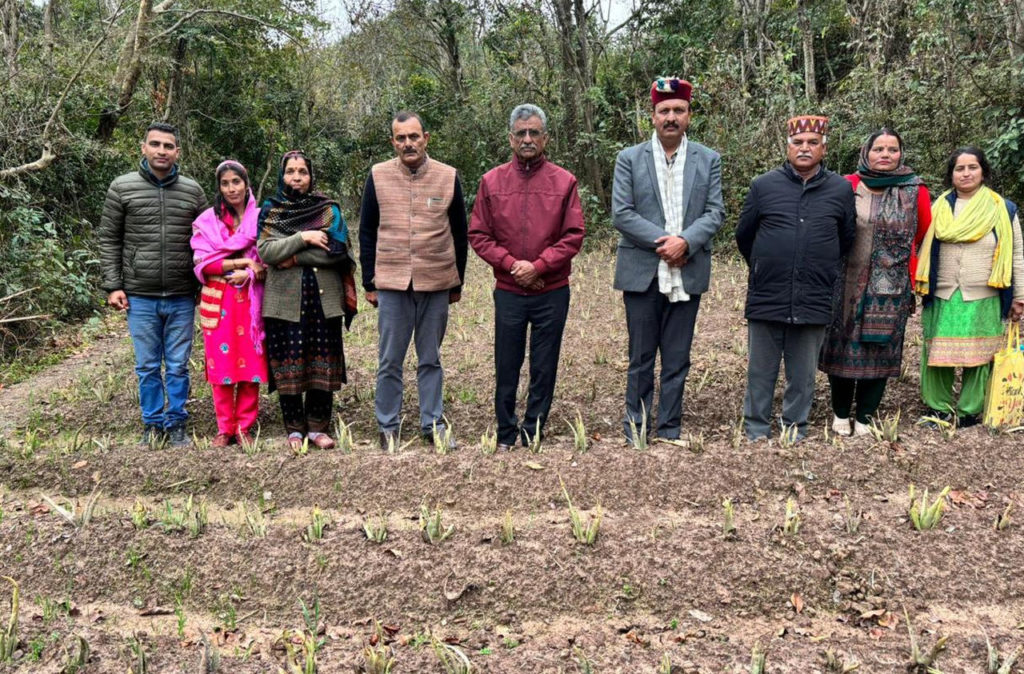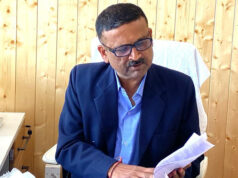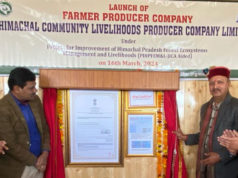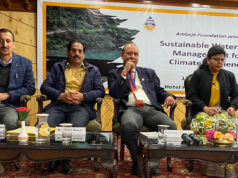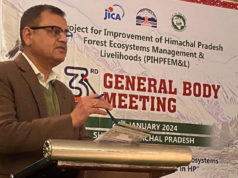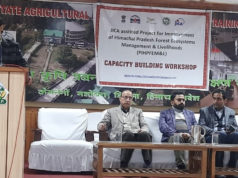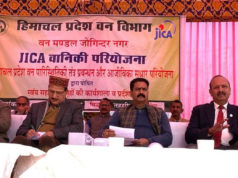In a remarkable tale of transformation, the arid landscapes of Thalla in Suket have undergone a profound metamorphosis, thanks to the visionary efforts of the JICA Forestry Project. What was once deemed barren and inhospitable has now become a thriving haven, filled with the promise of prosperity, all centered around the cultivation of 25,000 aloe vera plants.
The initiative, spearheaded by the local self-help group in collaboration with the JICA Forestry Project, has not only breathed life into the once-desolate land but has also rekindled the spirit of the villagers who had abandoned farming due to the relentless terror of wild animals.
The rejuvenation of Thalla’s landscape began with the planting of aloe vera saplings on private lands, transforming the previously unproductive terrain into a green oasis. This not only holds environmental significance but also represents a beacon of hope for the local community, offering them a sustainable means of income.
Nagesh Kumar Guleria, Chief Project Director of the JICA Forestry Project, recently visited Thalla to witness the flourishing aloe vera plants and commend the self-help group for their dedication and hard work. During his visit, he emphasized the project’s commitment to not only restoring green cover but also to empower communities by providing them with avenues for sustainable livelihoods.
The Saraswati Self-Help Group, the driving force behind this initiative, has successfully planted and nurtured 25,000 aloe vera saplings on private lands in Thalla. Chief Project Director Guleria praised their exemplary work and held a review meeting, offering valuable insights on strengthening the local economy through such initiatives.
A significant milestone in this inspiring journey is the recent Memorandum of Understanding (MoU) signed with Rudra Shakti Herbs Private Limited. This collaboration aims to market and sell the aloe vera produce cultivated in Suket’s Thalla. The self-help groups are set to earn substantial income, with aloe vera leaves to be sold at Rs 7 per kg and baby plants at Rs 21 to 25 each.
Chief Project Director Nagesh Kumar Guleria commended the resilience of Thalla’s farmers, who have transitioned from traditional farming to cultivating medicinal plants, setting a remarkable example for sustainable agriculture. He acknowledged the challenges faced by the farmers due to wildlife and praised their determination to turn adversity into an opportunity.
This success story stands as a testament to the positive impact that thoughtful environmental initiatives can have on communities. The JICA Forestry Project’s commitment to supporting sapling plantations in such areas continues to pave the way for sustainable development, offering hope, prosperity, and a greener future for the villagers of Thalla.


